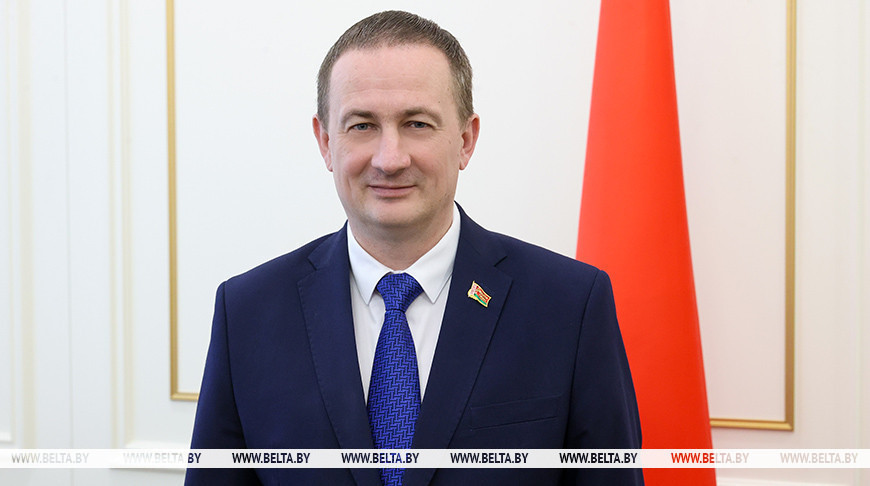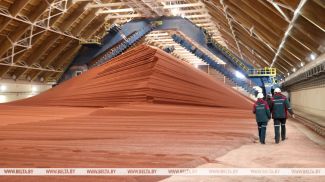
MINSK, 23 September (BelTA) - Real wages are rising in Belarus, and this inevitably affects production costs and, consequently, the price level, Belarusian Prime Minister Aleksandr Turchin said on the air of the Belarus 1 TV channel, BelTA has learned.
The prime minister noted that wages and rising prices are of the greatest concern to people. At the same time, the government faces the tasks of achieving balance and addressing a fair pricing formula. “This price should be fair for everyone, as far as possible: for the producer, the seller, and the consumer. Finding this balance is always very difficult,” Aleksandr Turchin is convinced. “There are objective economic prerequisites for inflation growth that are impossible to avoid. I always cite the wage growth in our country as an example. People should earn more, that's obvious. The share of wages in product cost in our economy is around 25% on average. For two years in a row, real wages have been rising. Last year they went up by 10%, and this year by 10% too. This inevitably affects production costs and, consequently, the price level. Today our enterprises do not have such a level of profitability that the final price of the goods remains the same despite the increase in production costs. Therefore, of course, we will have to increase the price in some areas.”
The prime minister noted that wages and rising prices are of the greatest concern to people. At the same time, the government faces the tasks of achieving balance and addressing a fair pricing formula. “This price should be fair for everyone, as far as possible: for the producer, the seller, and the consumer. Finding this balance is always very difficult,” Aleksandr Turchin is convinced. “There are objective economic prerequisites for inflation growth that are impossible to avoid. I always cite the wage growth in our country as an example. People should earn more, that's obvious. The share of wages in product cost in our economy is around 25% on average. For two years in a row, real wages have been rising. Last year they went up by 10%, and this year by 10% too. This inevitably affects production costs and, consequently, the price level. Today our enterprises do not have such a level of profitability that the final price of the goods remains the same despite the increase in production costs. Therefore, of course, we will have to increase the price in some areas.”
“Decisions cannot be made to the detriment of market participants. Enterprises cannot produce goods at a loss. There must be a certain level of profitability for trade enterprises as well. And most importantly, the price level must be acceptable for the population,” the prime minister emphasized.
Aleksandr Turchin again used apples as an example. “We faced abnormal weather conditions, and got a significantly smaller harvest [of apples]. But the farmer who grew that apple should at least make a small profit from it. Under these conditions, the price of this apple will objectively be higher than last year. The state, as a regulator, must now find a balance so that the farmer can make a little profit, but so that the price does not increase 3-4 times. The goods in the store should be sold at a price that does not harm the producer. It is also necessary for trade to apply its own minimum markup,” he said, emphasizing that as a result, a fair price should be established for the consumer.













